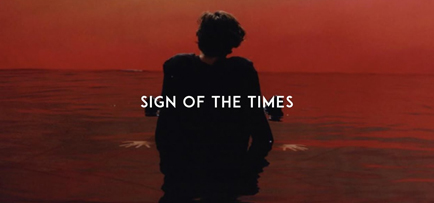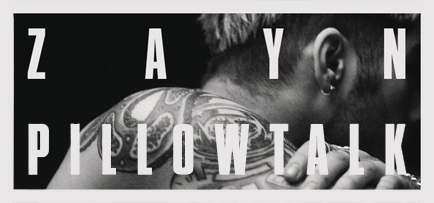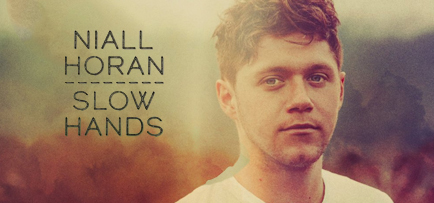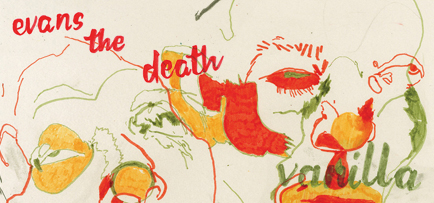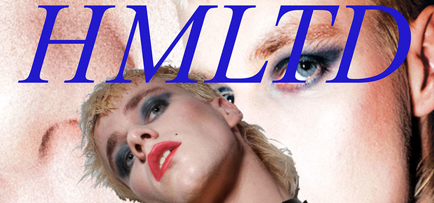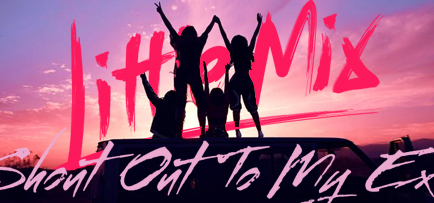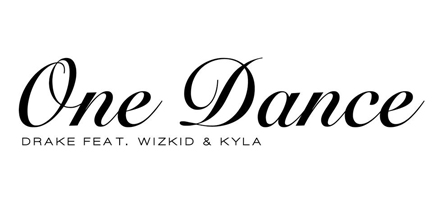(or: My Attempt at a Definitive “Ed Sheeran Sucks” Post, Written in the Hopes of Never Having to Discuss Him Again)

Ed Sheeran is not a good artist. He is a promising artist who’s capable of producing good work, but he is not – I repeat, not – a good artist in general.
The main issue is that Ed Sheeran is fundamentally trying to be two people at the same time. One is an exaggerated novelty act where a ginger nerd endearingly fails to be a hip-hop star; the other is a smooth and romantic acoustic artist delivering meaningfully sensitive platitudes to people who mean a lot to him. This is a difficult balancing act to manage.
I mean, you can see why it’s become popular: the two guaranteed sellers in the past few years have been R’n’B/hip-hop dance tracks and Post-Club sensitive men playing acoustic ballads. By combining examples of both styles into individual albums – and by successfully craving a niche in both genres through a) not looking like the average person who produces that type of music and b) being the one person in each genre who also writes the other thing – Sheeran has been able to consolidate the audiences of the two biggest selling genres of his time into one, the result being the one artist at the moment capable of such mammoth selling achievements as getting an entire album in the UK Top 20 or having nine songs in the UK Top 10 simultaneously.
The problem with this (and I don’t quite believe that I can so directly compare Meghan Trainor to Ed Sheeran here) is that this act requires Sheeran to consolidate a lot of artistic impulses into one vision when they’re pretty much constantly fighting against each other. Two extra problems come with Sheeran’s obvious desire to be a consummate entertainer and his increasingly obvious sense of hubris, both of which frequently undermine work which is already conflicted to begin with. And this is ignoring the fact that “ginger nerd endearingly failing to do hip-hop” is already a highly complicated act that someone could sustain an entire career on alone. The result is an artist with a highly successful discography of messy songs that never quite work.
Let’s take some case studies:
—
The A Team

This is a look at the life of a homeless woman desperately trying to stay alive. And in some ways it’s admirable, highlighting the plight of a forgotten underclass and providing its character with a quiet dignity in face of the indignities she frequently has to endure. In many ways, it’s our generation’s version of Phil Collins’ Another Day In Paradise. Except it isn’t.
Phil Collins details the plight of a homeless woman living in poverty, focusing on images of her trying to get help and being ignored by people before coupling this with a chorus that directly links both himself and the audience to the people ignoring her: ‘Oh, think twice, cause it’s another day for you and me in Paradise’. Phil Collins’ lyrics here are an attack at both himself and the audience for ignoring people like this woman; it’s a call for people to be better, be more sympathetic, and to take more affirmative action to help those who need it.
Ed Sheeran does not do this. Instead, he links the woman in question to a very romantic and softly-spoken lexis in which the image of her dying in the winter sleet becomes ‘an angel […] covered in white’. More than this, he keeps mentioning people outside of the narrative, looking into it: he talks about how ‘we’re just under the upper hand’ and how ‘they say she’s in the class A team’. The whole song becomes framed through various collectives looking in on the woman and making aesthetic judgments on her behalf. Lost in this is the idea of listening to the woman, engaging with her situation or helping it; instead, we’re invited to sit on the sidelines of her life and just watch her suffer. More than this, we’re invited to take aesthetic delight in the beautiful image of a homeless prostitute dying in the street. The song is so far away from a critique of audience passivity that it almost becomes an endorsement of it, inviting us to engage purely aesthetically with the life of a poor homeless woman almost entirely to gain the self-satisfaction of empathy and meaning. The woman gets written out of her own story and we are invited to gain intellectual and moral satisfaction out of watching her die, because her death is so beautiful man, it’s so beautiful.
This comes largely out of the genre that the song belongs to: it’s an acoustic ballad, of the type which Todd in the Shadows usually calls the White Guy With Acoustic Guitar genre. This genre is stereotypically linked to laziness, the usual implication being that the genre is full of talentless hacks who gravitate towards the style because a) it requires the least amount of practical set-up, b) it requires you to only know a few chords and be able to basically keep a tune, and c) it’s usually read as being a sensitive and mature art style, resulting in the musical genre which gets you the most indie points for the least amount of work. Too many artists use the iconography and sound of the acoustic guitar to signify “deep and meaningful music” when their actual composition and lyrics can’t do it on their own. You can see that right here: by writing a quiet acoustic ballad about a homeless woman, Sheeran thinks that he’s writing a meaningful expose on a life which too many people ignore. The issue is that that’s where he stops, resulting in something deeply problematic.
Then his boisterousness comes in. His desire to be perceived at least partly as a novelty act belies a willingness to be perceived as the class clown: the person who exaggerates how little they belong somewhere to justify it the eyes of others, doing so to ensure that the direct focus of everyone around remains on them. This in turn belies a general willingness to overplay his hand: it is not merely enough in an Ed Sheeran song to express a sentiment about something, he has to always make the statement which is big and broad enough to break the soul of anyone who listens. So the homeless woman he sings about isn’t just anyone who could live in the streets: she’s a ‘Class A’ homeless woman, and she’s on drugs, and she’s a prostitute, and she’s dead – but didn’t just die, she died in a snowstorm, and it was beautiful, and everyone saw it, and everyone agreed, it was tragic, and beautiful.
The issue with this is that the song quickly stops being about the woman’s suffering and becomes about how sad Sheeran can make that suffering look. This is what leads to the song being easily accused of egotism: this is more directly about Ed Sheeran feeling bad about a homeless woman than it is about the homeless woman. The experience of listening to this song thus becomes the simulation of sympathy: it’s not about empathizing with a dying homeless woman, it’s about looking like you’re the type of person who empathizes with dying homeless women, all because you then get the indie cred, a purged conscious and good sales, all without doing actually anything to help her.
So Sheeran adds a sense of over-importance to a vapid music genre in order to produce something that allows him and his listeners to pretend that they’re being sensitive at the expense of the song’s subject. It’s hollow, exploitative and morally bankrupt. Phil Collins is better than this.
—
Thinking Out Loud

Now, let’s move onto the big one. I’ve said multiple times that I consider Thinking Out Loud to be one of the worst songs I’ve ever heard, particularly in my post where I called it the worst song of 2014. That post has become quite infamous, to the point where I’ve had several Sheeran fans on Twitter tell their followers to spam my blog out of existence due to it. I can see why it’s gained this status. I used the “Worst Song of 2014” title to justify a more exaggerated tone than usual, allowing me to release some pent-up emotions which were ultimately more to do with the song’s disproportionate critical praise than the song itself. My line-by-line critiques of the song could be quiet petty too, and maybe the blowjob joke was a step too far. In short, I imagine that people who like the song would probably find my review of it to be unfair: to them, I was either not listening to it in the way the song intended or I was purposely over-exaggerating my critiques to gain political points. My defense though is that the song pretty much actively denies anyway of listening to it that isn’t overly petty.
The song details Sheeran and his girlfriend lying together (possibly under the light of a thousand stars) with Sheeran just saying… things. Tiny things, random things, meaningless things; all connected together because they sound romantic and refer to Sheeran’s girlfriend. It doesn’t actually matter what these statements say, it only matters what they express: the love and dedication that Sheeran has for his girlfriend. As such, my previous arguments that none of Sheeran’s statements make sense are indeed me missing the point. Within the song, it doesn’t matter whether the statements make any sense or are romantic at all, all that matters is that they appear romantic. In the same way that The A-Team is about the performance of sympathy, this is about the performance of love. Indeed, this song is a step-up on The A Team in that the lyrics actually realise that’s what they’re about and uses it in their favour.
This is even a song that would work well within the context of an acoustic ballad. It’s small, intimate, simplistic, doesn’t require well-written lyrics: it’s perfect. This song screams for a laid-back atmosphere where a man hazily and indistinctly lists a bricollage of vaguely love themed stuff for no reason other than it’s romantic. It’s a beautiful and crystalline sliver of an acoustic pop song.
But then comes Ed Sheeran, the consummate entertainer who needs everything he says to be a massive statement of intent. And he wrecks everything.
Sheeran’s performance is way too strained and tries way too hard. The worst moment comes near the end where he just blurts out the line PUTYOURHANDSINMYLOVINGARMS as if it’s genuinely hurting him. This is just the wrong decision for what the lyrics are trying to do. The whole point of the song is that it’s meant to be a small, quiet and intimate thing, capturing the image of two lovers alone at night, whispering in each other’s ears and talking about life. Yet what Sheeran is apparently doing in this line is shouting at his lover while writhing around on the ground. Imagine two people sat in a field at night, snuggling with each other and ildy talking about their emotions and futures. Now imagine two people sat in a field while one shouts “HUG ME! HUG ME!” at the other. It ruins the image.
And because Sheeran strains every line and because the music then has to be boistered to fit the performance, the lyrics have to suddenly start making sense. When you’ve got a song that goes out of its way to foreground it’s emotional content by over-enunciating every line and syllable, the words and sentences need to be able to support a lyric-focused mode of listening. But these lyrics can’t. Because they were never designed to support this type of listening in the first place. It doesn’t work.
And this returns us to our central problem. Here we have Ed Sheeran, the boisterous maker of definitive statements, singing a song written by Ed Sheeran, the ginger clown trying to be a pop star and charmingly failing. At no point does the song try to bridge the gap between these two personalities: it just throws them together into a song that ends up fighting between two contradictory personalities. Hell, it doesn’t even do that: Sheeran writes the song in one style, sings it in another, and then expects that the two are naturally going to work. The result is a track without a single functional element, not because any of them are inherently rotten but because no single element gets supported by any of the others.
—
Galway Girl
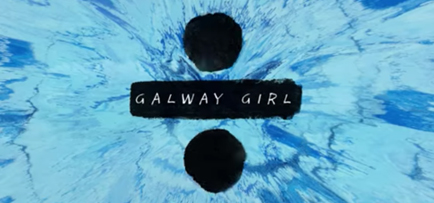
And now we move to the rare one: the Ed Sheeran song where I agree with the prevailing opinion. No-one likes this one. The record company begged Sheeran not to release it. Many reviews of it have been negative. I can name several celebrities who listened to the song to see if it was as bad as everyone said, only to go onto Twitter and confirm that yes, it was. Only three groups of people seem to like it: Ed Sheeran fans (who like everything he does); Galway Girls (who find the idea of there being a song about Galway to be a novelty); and people who find it So-Bad-It’s-Good. You’d be hard pushed to find someone who enjoys it for the quality of the song itself.
Firstly, we have lyric issues. For a song that ties itself so specifically to a single location (the aforementioned Galway), Sheeran doesn’t seem to know much about it. Grafton Street gets mentioned, despite the fact that Grafton is in Dublin, not Galway. The song itself is a tribute to the Irish artist Niamh Dunne, who’s from Limerick. And so on. Elsewhere, when he isn’t getting things wrong, he’s dealing 100% in Irish cliches: the girls in Galway apparently drink a lot, play folk music and listen to Van Morrison. Presumably they also wear green clothing and eat soda bread. As such, the song can’t be read about relating to Galway at all: everything is purely coded “Irish” with the invocation of Galway seemingly done purely for the alliteration.
Then there’s the music which doesn’t hold together in the slightest. Firstly we have Sheeran’s rap style, something which can be charitably described as clumsy. I mean, he defines himself as the ill-fitting hip-hop artist who doesn’t produce hip-hop songs; of course it’s clumsy. It’s on purpose. But the issue is that his rap verses here sound like all of his other rap verses: the rhythms, cadences and flows are all Sheeran audibly working on autopilot. And then we get the fiddle section which comes out of nowhere, doesn’t match with any of the other music, and occasionally features Sheeran quazi-drunkenly mumbling over it in a way that almost matches the tune. And again, this seems to be the point – this song is ultimately meant to sound like a charmingly amateur Irish pub singalong; its stupid, messy and ridiculous nature is meant to be part of the appeal. The issue is that the song never quite justifies how messy it is. The fiddle music is there because Irish music apparently equals fiddles. The rap music is there because the lyrics feature boozing, partying and drunken love; and the lyrics feature boozing, partying and drunken love because those are the subjects of most rap songs. And though the song is made of two distinct elements, there’s never any attempt to combine them: the rap part just cuts to the fiddle part before cutting back, creating an audible whiplash. Because the fiddle music is so idiosyncratic and because the cuts between song sections are so jarring, the result is a song that goes past being infectiously silly and ends up being nigh-on bewildering. And then the rap and the fiddle music isn’t even being played well (again, on purpose), making it difficult to figure out whether the sudden jarring cuts are artistic decisions or pure incompetence. The result is that it’s hard to figure out even what the song is: it aims for “stupid enough to work” and ends up “unfathomably bizarre”.
These aren’t even my critiques anymore, but they’re all echoes of things I’ve critiqued in Sheeran’s other songs. The fact that Sheeran uses “Galway” and “Irish” as synonyms belies the same lack of depth which makes him mistake “describing dead homeless woman” with “sensitive lament for the plight of the homeless”. Similarly, Galway Girl throws Folk Music and Rap Music together is the same way that Thinking Out Loud throws Boisterous Ed Sheeran Song with Sensitive Ed Sheeran song, resulting in the same sense of messiness. The only difference is that the flaws are more obvious here. Sheeran’s messy mixing is more noticeable in Galway Girl than it is in Thinking Out Loud, for instance, because the difference between a rap song and an Irish folk song is easier to discern than the difference between two types of Sheeran song. Galway Girl is ultimately the straw that broke the camel’s back; the time he stepped too far over the line.
—
‘Sing’
At this point, it’d probably be prudent to ask what a good Ed Sheeran song is like. Luckily, there’s an easy example to point to: Sing, the first single released from his album x.

Sing is a club song played with an acoustic guitar, telling a story of how Ed Sheeran wants to sleep with someone at a club but is waiting for them to show interest and consent before going for it. This is another example of him merging genres, only this time it works. The use of acoustic instrumentation to play a nightclub song situates Sheeran as an acoustic artist first and foremost, creating a liminal relationship with the club genre. This is then backed up by the song’s character: he’s in a nightclub but obviously doesn’t quite get it, not understanding the unspoken rules which govern club interaction and providing an alternative version of them. The result is a rejection of those rules: a dance song merged to a more sensitive aesthetic which stresses the importance of consent, even within a club environment. It’s an effective piece of music which fulfills it’s good intention well.
It’s worth comparing Sing to Galway Girl, given that Galway Girl similarly mixes acoustic instrumentation with club music and rap. In doing this though, you are just left with the sense that Sing has been thought through more. In Sing, Sheeran hasn’t just picked two genres and decided to mash them, he’s picked two genres, thought about what the combination of those genres would imply, and built a set of lyrics which reflect the combination. This combination is also one which provides a public good, giving us a feminist-tinted version of the club form as opposed to its more common predatory version. In contrast, Galway Girl suffers from just having no conceivable point: Sheeran thought that mixing Irish fiddle music with acoustic hiphop would be funny, slammed them together, found out that the resultant song was messy enough to be accidentally funny, and just went with it. The result is that Galway Girl rings hollow in a way that Sing doesn’t. Sing reformats an entire genre to provide a social good, while Galway Girl is Sheeran messing about with Irish music because he can.
The irony is that Sing is easily the most disposable of Sheeran’s recent singles. Though it does interesting things with its genre, it’s trying to be nothing more than a bog-standard party jam. This is greatly to the song’s benefit. It takes two genres which fit together well but are rarely written together, thinks through what joining them together means and then plainly plays it out, resulting in something which is clean, sharp and focused. In contrast, Galway Girl mixes a random collection of things for no discernible reason, decides to play the resultant mess for laughs and then wobbles away without actually amounting to anything.
Sheeran ultimately works best when concentrating on smaller scales. When he goes big, he goes too big, apparently expecting any cracks to be automatically covered by the sense of scale. Meanwhile, give him something purposely small and he finds himself with nowhere to hide. All of his genre hopping and over-the-top tendencies are crutches he uses to hide when he’s not being as good as he could be, something which is a genuine shame because they obscure the fact that, when he wants to be, he is in fact a very good songwriter.
—
Which is ultimately my issue with Ed Sheeran’s music: the sense of complacency within it. All too often, Ed Sheeran will grab the first idea that comes to him, throw together a first draft, decide that no further work is needed, and release it for public consumption. Indeed, Sheeran seems to be open and proud about this: he little more than bragged about how he wrote the Beiber song Love Yourself in 20 minutes straight. The result is that the working components of his songs never quite fit together, resulting in them never quite managing to mean anything. That’s the thing about first drafts rushed in 20 minutes: they’re always going to be imperfect. That’s why editing is a thing. Hell, that’s why most good writers would argue that writing is editing. Yet Sheeran doesn’t seem to care. His songs don’t work pretty much because he rarely shows any interest in making them work.
The tragedy is that he could so easily be better. The idea behind The A Team is not a bad idea for a song; it’s just that Sheeran hasn’t thought about his use of it enough to realise that it’s shallow and problematic. Similarly, Thinking Out Loud isn’t a bad idea for a song, it’s just that Sheeran hasn’t thought enough about his performance to realise that it’s fighting against his lyrics. Even Galway Girl is not a bad idea for a song (mixing folk music with pop music isn’t unheard of in the slightest); the issue is entirely with how Sheeran uses these ideas, or more accurately how he can be barely said to use them at all.
This lack of effort also contributes to the sense that Sheeran’s work is just hollow. His discussion of homelessness doesn’t talk about homelessness but merely simulates sympathy towards it; his song about Galway fails to tie itself to Galway in any identifiable way; and his romantic song is more concerned with sounding romantic than actually being it. Yet the tracks foreground how big and meaningful they are in such a forceful way that they pretty much demand to be treated like sensitive, meaningful works of art. As such, Ed Sheeran songs aren’t ultimately about the audience actually feeling something but are about listening to Ed Sheeran pretending that he’s making you feel something. Ed Sheeran songs are enjoyable as long as you take them in the exact way that Ed Sheeran demands you to – as minor representations of potentially interesting ideas which you should consider meaningful without ever thinking about them too much. Any alternative readings are not allowed because they distract from Sheeran’s authorial vision. None of Sheeran’s songs are about their purported topics at all, they’re all about listening to Ed Sheeran talking about things. All of his songs foreground Sheeran as an artist, to the detriment of the songs.
This is why Sheeran’s fanbase are so rabid in their support of him: they like Sheeran himself. Because all of Sheeran’s songs are almost entirely about him, the boundaries between Ed Sheeran as a person and Sheeran’s work as a discography get broken down. This is why my critique of Thinking Out Loud went down so badly in Sheeran circles: from their perspective, I wasn’t just calling one of his songs poorly constructed, I was directly critiquing him as a person for being morally insufficient. (Ironically, it wasn’t until this post that I started doing that.) Because his fanbase is so much invested in Sheeran as a person, this then became me personally critiquing them as well. I wasn’t just a music critic reviewing one song, I was an arsehole deliberately insulting their lifestyle, taste and friendship groups. Of course they wanted me spammed off the internet.
The thing is, this audience is being completely disserved by Sheeran. Most songs feature Sheeran putting the minimum of effort into them, using the fact that he’s Ed Sheeran to get away with it. People who like Ed Sheeran then put up with it because he’s Ed Sheeran. As such, Sheeran never has to try again: we’ve proven time after time that we’ll just buy anything with his name on. So now Sheeran goes around, picking up stupid ideas that make him laugh, rushing first drafts onto CDs and selling them for public consumption. It’s horribly cynical and shows an almost complete contempt for its audience. Ed Sheeran’s fanbase is dedicated to a man who barely considers them worth trying for. And they keep allowing it to happen. We keep allowing it as a listening public overall.
In these terms, Shape Of You is quite instructive of Sheeran’s work overall. He’s only interested in the “shape of you”, the broadest strokes, the widest net. He’s only “in love with your body”, obsessed with husks and shells. Sheeran’s work is ultimately the romanticism of hollowness: a product through which you can hear a man congratulate himself for having such clever ideas. His work is nothing less, and certainly nothing more.
 The perennially late series that looks at each (relatively) recent UK No. 1 in turn and asks what they say about us.
The perennially late series that looks at each (relatively) recent UK No. 1 in turn and asks what they say about us. The perennially late series that looks at each (relatively) recent UK No. 1 and asks what they say about us.
The perennially late series that looks at each (relatively) recent UK No. 1 and asks what they say about us.

